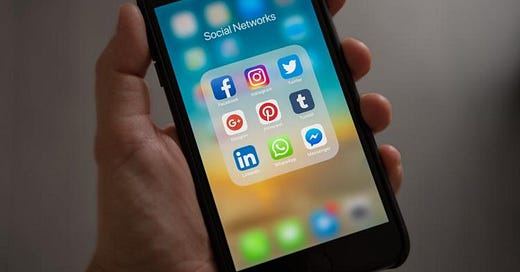Dear creators, a happy Wednesday to you!
Unless you are living under a rock you must be aware of the wave of panic and anger over the recent deliberations regarding a ban on social media platforms in India. But what do the guidelines say and what does it actually entail?
The Ministry of Electronics & Information Technology in India has rolled out a set of Intermediary Guidelines that all social media platforms must comply with.
These guidelines specify that the platforms must appoint a Chief Compliance Officer, Nodal Contact Person, and Resident Grievance Officer from India. They must also publish a monthly compliance report mentioning the details of complaints received and action taken on the complaints by the significant social media intermediary. As the government feels that these platforms are inefficient in self-regulation.
But these guidelines were set out in February, why then this sudden wildfire?
Because 25th May was the deadline for compliance failing which these platforms ought to face a ban.
As of now only Koo, the Indian version of Twitter has accepted the guidelines. This means all the other social media giants are in a vulnerable position.
But there is no cause for alarm. All the US-based platforms had asked for 6 months’ time as the headquarters are working towards incorporating the guidelines in their platforms. Facebook has already issued a statement addressing the fact that they will surely comply.
What can we make out of this?
An all-encompassing ban on these platforms is a very unlikely possibility.
Firstly, India is the largest user base for most of these platforms. According to official reports, the number of users in India across platforms is:
WhatsApp users: 530 million
YouTube users: 448 million
Facebook users: 410 million
Instagram users: 210 million
Twitter users: 17.5 million
As capitalist organizations, these platforms would never endanger such market potentials no matter what guidelines or structural changes they are faced with. Profit is their motive, as long as governments don’t hinder that, they are here to stay.
Secondly, all social media platforms are propaganda tools for both the ruling party and the opposition. They have thousands of employees working in IT cells and invested millions of dollars in their social tech infrastructure. So it will be a huge loss for the government to ban it too. Unlike TikTok which was relatively new and had minimal propaganda opportunity and was thus easier to ban (also in the case of TikTok there were many other nationalist and security tangents involved)
So what should we do as users and creators?
Don’t give in to the wave of rumors and conspiracies. Read up only official statements and reports.
In the coming days, many changes in user and privacy guidelines might be introduced. Don’t just click ‘agree’. Make sure to go through these guidelines and understand what it would mean in your daily internet experience. Stay aware and informed!
Do let us know what are your personal opinions regarding this ban controversy. We would love to have a discussion regarding the same. You can also reach out to us on our social media handle @platfromforartists
Hold on in these tough times and take care of your mental health, talk to your loved ones, stay safe and hydrate yourself.





Big deal if we loose such platforms. Social media in it's current form is gamification of people. There's virtually no evidence that social media like facebook or twitter or tiktok or even the newer models like Twitch and Discord have any positive impact on society in general. Further, current social media is made of really harmful and biased algorithms. There's a fair amount of scientific evidence now which points to the polarity and divisive effect of bad algorithms. India is a prime example of that - where hateful content gets constantly amplified on social media. So one has to expect a social media which serves the people, and not the other way around.